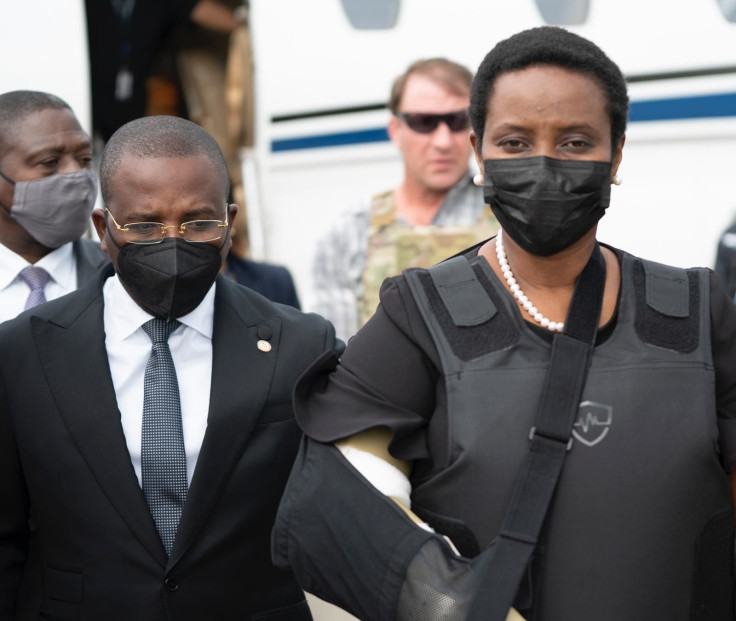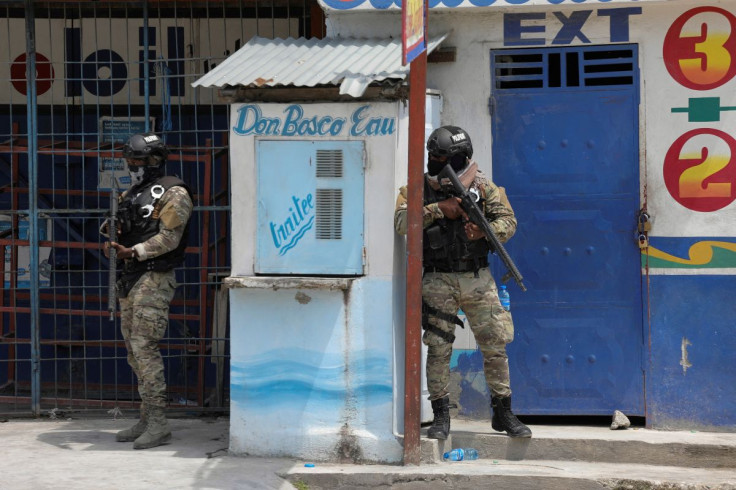
The widow of assassinated Haitian President Jovenel Moïse and a former prime minister of the country have been indicted as an investigation on the event came to an end.
Concretely, Martine Moïse and Claude Joseph have been accused of complicity and criminal association for the 2021 assassination of the then-president, which catalyzed an ongoing period of deep instability in the country, now mostly dominated by warring gangs.
The most searing charges were aimed at Haiti's former chief of national police, Léon Charles. Currently the country's permanent representative to the Organization of American States, he has been accused of murder, attempted murder, possession and illegal carrying of weapons, conspiracy against the internal security of the state and criminal association.
"We were able to discover with insight the degree of participation and the role of each of the groups of delinquents who joined together under the influence of Machiavellian plans developed between authors, co-authors, accomplices and henchmen for the purposes of assassinating President Jovenel Moïse," reads a passage of the document.
Nearly 50 people were indicted overall in the document. So far, more than 40 suspects are in Haitian prisons awaiting trial. 11 others have faced federal charges in the United States and three have been sentenced.
They are a mix of businessmen who hoped to get lucrative new contracts in a new administration, former Colombian soldiers hired to carry out the assassination and financiers of the operation.
Moïse was killed on July 7, 2021, after a group of people raided his private home in Port-au-Prince. He was supposed to be guarded by between 30 and 50 police officers, but the judged concluded that only a handful were there on that night. Out of those who were there, some were disarmed and handcuffed while others "had time to throw themselves down a ravine" for safety.

The report also mentioned that "none of the police providing security to the head of state was in danger. Unfortunately, the head of state was assassinated with ease."
Over the past few weeks protests have intensified against Prime Minister Ariel Henry, who has been in power since the assassination of Moïse. Since then, the country witnessed a rise in violent gangs. The two most powerful gangs in the country are called G9 and G-Pep.
Port-au-Prince has become a battlefield, with fighting taking place in the streets and civilians trapped in the crossfire. To protect themselves, residents erected barricades all over the capital and surrounding areas.
Earlier this year, the head of Human Rights Watch revealed that around 300,000 people in the country have been internally displaced due to the surge in gang violence.
The international community has sought to address the situation with the deployment of a multinational mission led by Kenya, but a court from the African country blocked the initiative, putting it in peril.
Backed by the United Nations and financed by the United States, it seeks to help local law enforcement defeat the local gangs that have taken control of most of the capital. Kenyan and Haitian leaders have vowed to find a way to continue the mission regardless.
© 2024 Latin Times. All rights reserved. Do not reproduce without permission.







